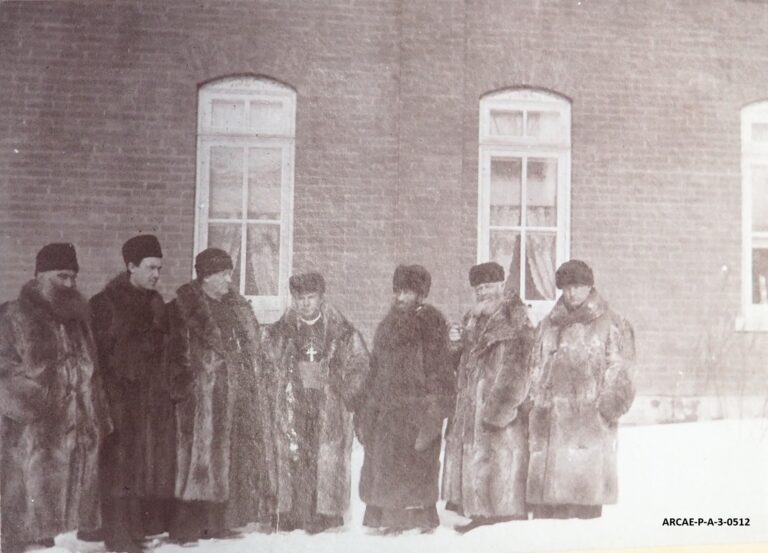I attended my first youth ministers\’ conference in January 2001, surrounded by 40-some other youth ministers who were far more experienced than I.
I soaked in the prayer, the presentations, and the community. But what stands out to me most from that conference was a question a speaker leveled at us: why did God become a man in Jesus Christ?
I wrestled to find the words to answer his question. While I grew up knowing about Jesus, the opportunity to get involved in a parish youth group in my teenage years led to a more substantial encounter with Him. Jesus ceased to simply be a character in a story, but someone real, knowable, and near to me.
Since I wasn’t the only one who had a hard time answering the question, the speaker pointed us to a section in the Catechism of the Catholic Church (457-460) that presents four reasons the Word became flesh (John 1:14). Discovering these answers helped me find words to express my emerging faith with others, and a clearer understanding of them can be of benefit to any Christian.
To that end: why did God become a man in Jesus Christ?
The Catechism begins by telling us that Jesus became man “in order to save us by reconciling us with God, who ‘loved us and sent his Son to be the expiation for our sins” (CCC 457). From the time of the fall in Genesis 3, we’ve found ourselves at odds and separated from God because of our sins. Despite the variety of ways that God reached out to us and intervened in human history throughout the Old Testament, there still existed a division between us… one that we were powerless to overcome. But this brings us to the central mystery of our faith: the passion, death, and resurrection of Jesus. We find hope in knowing that, thanks to Jesus, sin and death no longer have the final word in our lives; God does.
Second, the Catechism tells us that Jesus became one of us “that thus we might know God’s love: ‘In this the love of God was made manifest among us, that God sent his only Son into the world, so that we might live through him’” (CCC 458). If you read passages like 1 Corinthians 13 or 1 John 4, you get descriptions of what that God’s love is like: that it is patient, and kind, and that perfect love casts out all fear. Passages like these should lead us to one inescapable conclusion – we are loved by God. Be clear here, God’s love for us isn’t just a cliché. It’s at the heart of our faith. We believe that God loves us, holding nothing back. It is for this reason that St. Paul writes: “God proves his love for us in that while we still were sinners Christ died for us” (Romans 5:8).
Third, the Catechism tells us that “The Word became flesh to be our model of holiness” (CCC 459). Consider that Jesus was born, grew up, and lived through human life just as we experience it. The difference between us and Him is that He does so without sinning (Hebrews 3:15). We are called to live our lives in imitation of His: setting time aside for prayer, living to the highest standards of integrity, having mercy and compassion for those in need around us (and doing what we can to help.)
Finally, we read in the Catechism that Jesus came “to make us partakers of the divine nature… For this is why the Word became man, and the Son of God became the Son of man: so that man, by entering into communion with the Word and thus receiving divine sonship, might become a son of God” (CCC 460).
To become ‘partakers of the divine nature’ means that we are more than just the sum of our parts; God has lifted us up and transformed us. It is sometimes referred to as “divinization” – that by Christ’s incarnation, our humanity has been “lifted up” to become something more than it ever could have been before.
It is for this reason that the Church reminds us we are better off now, with Jesus as our Savior than Adam and Eve were when they could walk and talk with God. By our Baptism, we can be called children of God. This is also why, at the Easter Vigil, we hear: “O happy fault that earned so great, so glorious a Redeemer!”
St. Peter tells us that we ought to “always be ready to give an explanation to anyone who asks you for a reason for your hope” (1 Peter 3:15). That was really the question the speaker leveled at us in 2001. Do we know the reasons for our own hope? Are we ready to express that hope to others?
Understanding and being able to explain that Jesus came to save us, to teach us God’s love, to be our example of holiness, and to make us partakers of the divine nature have helped me to do just that.
In a world that is full of so much despair, as Christians we are able carry in us a great hope – all because “…the Word became flesh and lived among us, and we have seen his glory, the glory as of a father’s only son, full of grace and truth” (John 14:1).
-Mike Landry serves as chaplain to students in Evergreen Catholic Schools. Find him at https://www.mikeisthird.com.




